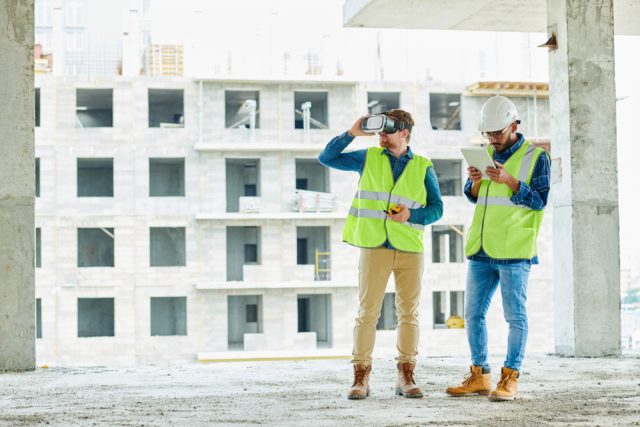The British technology sector is worth nearly £184 billion
and is growing 2.6 times faster than the rest of the
economy. Prospects are particularly good when it comes to roles in London,
which is the world’s second most connected place for tech after the famous
Silicon Valley. Aside from the capital, a further 15 UK cities have more
digital tech employees than the national average.
Between the generous salaries, variety of roles spanning
multiple industries, and job satisfaction, it’s easy to see why tech is such a
popular sector with employees. If you’re interested in joining their ranks,
you’ll be pleased to learn that UK tech employment is at a record high. These
are five of the most attractive tech jobs you could aim for.
SAP professional
SAP (Systems, Applications, and Products) is an Enterprise
Resource Planning (ERP) system, which uses a database management system to show
an integrated and continuously updated look at business processes. This allows
a company to easily track everything from raw materials and inventory to orders
and payroll.
SAP, in particular, is currently used by over 90% of Forbes Global 2000 businesses,
with most large enterprises working with SAP S/4HANA—reportedly the
fastest-selling product in the company’s history. According to Centiq’s State of SAP HANA Report 2018, 68% of
chief information officers believe their businesses need more knowledge of
S/4HANA functionality. And with an average salary of £52,500 for SAP roles in
the UK, it’s certainly an appealing tech job.
You don’t necessarily need to be an IT professional to start your SAP career—there are plenty of
potential career paths within the industry, including business intelligence,
project management, and technical consultancy. To help get your foot in the
door, it’s recommended that you familiarise yourself with the finer points of
the software by attending SAP user events to network, and ask for advice.
LinkedIn is a good place to find relevant roles, as well as specialised SAP
recruitment agencies, who can help place you with the right company.
AI engineer
AI engineers deal with algorithms, neural networks, and
additional tools to advance the field of artificial intelligence. These tech
jobs are in very high demand given the industry’s current rate of expansion,
which is predicted to create $3.9 trillion worth of business value
by 2022. As such, it’s no wonder that demand for AI skills has tripled in the UK
over the last three years.
As AI is now part of so many working environments, this role
gives you the opportunity to work across a number of different sectors. For
instance, employment as an AI engineer could see you contributing to
healthcare, retail, or even public planning. Alternatively, you could focus on
theory and research by joining the AI academic community. Strong computer and
mathematics skills are essential for this role, so a computer science degree
will be beneficial.
Blockchain developer
If you have any interest in cryptocurrency, you’ll already
be familiar with blockchain. This is the technology behind bitcoin—a growing
list of records linked together via cryptography, acting as a decentralised
data storage system that members of the public are able to access and use.
Though predominantly associated with financial transactions,
blockchain has the potential to affect the way many major industries operate,
including messaging apps, Internet advertising, and real estate. A blockchain
developer takes control of every stage of its application, which means assuming
responsibility for research, analysis, design and execution. Duties may include
building infrastructure and launching security measures, while you’ll often
collaborate with fellow engineers and IT professionals. Experience with
cryptography is a bonus, but programming skills and knowledge of programming
languages such as Java, Python, and C++ are what will really help you land this
technical job.
Cybersecurity engineer
Considering that a typical cyberattack costs a business an average of $1.1 million, it’s
no surprise that data security is of paramount importance to many modern
companies. As more companies expand their prospects through the use of digital
platforms, cybersecurity jobs are expected to grow by 12% between 2016 and 2026,
which is faster than the average rate for all occupations. In this tech role,
you’d be responsible for formulating strategies to help enterprises protect
their information from cybercriminals.
As well as planning and constructing effective security
measures, you’ll also be required to troubleshoot any problems, test for
network failures, and promptly respond to any data breaches that may arise.
Experience with firewalls, hacking techniques, and cybersecurity trends are
essential if you want to bag a job in this field. Aside from a degree in
computer science or systems engineering, there are multiple industry qualifications to enrol in which can
help you tackle this career path, such as the Certified Ethical Hacker (CEH)
and GIAC Certified Penetration Tester (GPEN) certificates.
Data scientist
Successful companies need to analyse data before making
business decisions likely to pay off, which is why they hire data scientists.
These employees handle, organise, and interpret information on a large scale,
with the aim of highlighting and shortcomings in a company’s processes and
adjusting accordingly. The role has an impact on product development,
algorithms, A/B testing and more. Candidates will need to have significant
intellectual curiosity, as well as knowledge and experience of coding and cloud
tools, strong communication skills, and a highly analytical eye.Data scientist salaries start at £25,000 to
£30,000 in the UK, but after a few years’ experience this could increase to
£40,000-£60,000. If you prefer to work alone, this job isn’t for you.
Collaboration and the sharing of ideas and solutions with an extended team is
essential to the role. However, if this is a role you’re interested in, you
should try and gain some work experience at a relevant organisation, or stand
out from the crowd by entering special competitions. For example, through the Data
Science Challenge, entrants can compete to win prizes by using their
skills to solve real-world issues, such as humanitarian crises and natural
disasters.



















